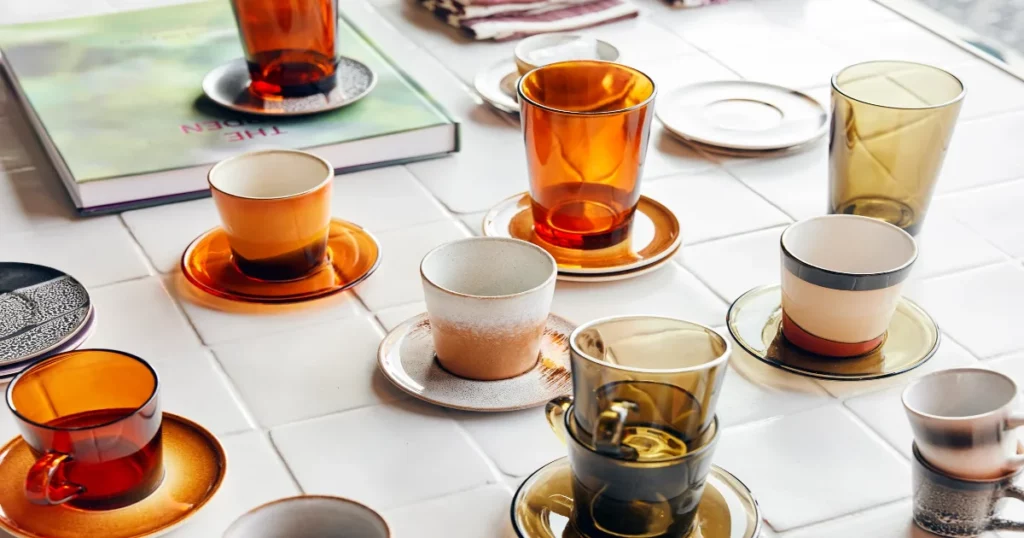No products in the cart.
Blog
Glass vs Ceramic Mugs: Which Is Better?
Mugs are an essential part of our daily routine, whether it’s for enjoying a morning cup of coffee or sipping on tea in the afternoon. When it comes to selecting the perfect mug, two popular choices are glass and ceramic. Each material offers unique advantages and disadvantages, catering to different preferences and needs.
In this comprehensive comparison, we’ll delve into the characteristics of glass and ceramic mugs, exploring their similarities, differences, and the factors to consider when choosing between them.
About Glass Mug

Glass mugs, with their transparent elegance, offer a visually appealing way to enjoy your favorite beverages. Crafted from durable materials like borosilicate glass, these mugs are renowned for their heat-resistance and ability to maintain the temperature of hot or cold drinks. Their smooth surface makes them easy to clean, and they’re often dishwasher-safe.
Glass mugs come in various shapes and sizes, from classic designs to modern innovations like double-walled constructions, which insulate beverages and keep hands comfortable.
About Ceramic Mug
Ceramic mugs, on the other hand, exude a cozy charm and come in an array of colors, patterns, and textures. Made from clay that’s fired at high temperatures, ceramic mugs offer excellent heat retention, keeping your drink warmer for longer periods. They are sturdy and less prone to breakage than glass, making them ideal for everyday use.
Ceramic mugs may have a glazed or unglazed finish, with the former providing added protection and a glossy appearance. Some ceramic mugs are microwave-safe, although it’s essential to check the manufacturer’s guidelines.
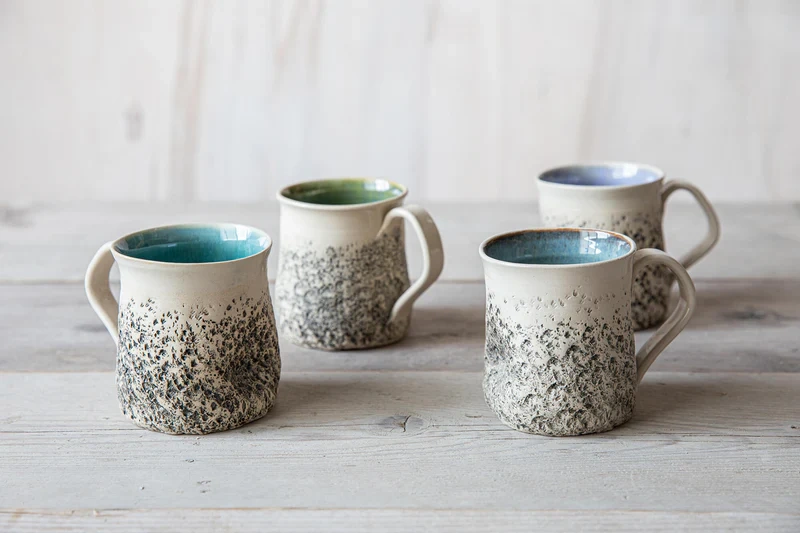
Glass vs Ceramic Mugs: What Are Similar
Both glass and ceramic mugs serve the primary function of holding beverages, whether hot or cold. They are available in a variety of shapes and sizes, catering to different preferences and serving needs. Both materials are non-toxic and safe for food and beverage consumption when produced according to safety standards. Additionally, both glass and ceramic mugs offer a blank canvas for customization, allowing for personalized designs or messages.
Glass vs Ceramic Mugs: What Are Different?
Despite their similarities, glass and ceramic mugs have distinct characteristics that set them apart.
Heat Retention
One significant difference between glass and ceramic mugs lies in their ability to retain heat. Ceramic mugs are renowned for their superior heat retention, keeping beverages warmer for more extended periods compared to glass mugs. This is due to the dense nature of ceramic material, which traps heat effectively.
As a result, ceramic mugs are favored by those who prefer to savor their hot drinks slowly, such as coffee enthusiasts who enjoy leisurely morning rituals or tea drinkers who appreciate a steaming cup throughout the day.

In contrast, glass mugs are less effective at retaining heat and tend to cool down more quickly. The thinner walls of glass mugs allow heat to dissipate faster, resulting in beverages cooling down faster than in ceramic mugs. While this may be desirable for individuals who prefer their drinks at a cooler temperature or enjoy iced beverages, it can be a drawback for those who prefer their drinks piping hot.
However, some glass mugs feature double-walled constructions or thermal properties that improve heat retention to some extent, albeit not as efficiently as ceramic.
Durability
Another key point of differentiation between glass and ceramic mugs is their durability. Ceramic mugs are generally more robust and resistant to breakage compared to glass mugs.
The fired clay material used in ceramic mugs undergoes a high-temperature firing process, resulting in a dense and sturdy product. This makes ceramic mugs less susceptible to chipping, cracking, or shattering, even when subjected to accidental drops or impacts. Consequently, ceramic mugs are often preferred for everyday use in busy households, offices, or commercial settings where durability is paramount.
Glass mugs, on the other hand, are more fragile and prone to breakage due to their inherently brittle nature. While modern manufacturing techniques have produced tempered and borosilicate glass mugs that are more resistant to thermal shock and impact, they are still more delicate than ceramic counterparts.

Glass mugs are susceptible to cracking or shattering if dropped onto hard surfaces or exposed to sudden temperature changes, such as pouring hot liquid into a cold mug or vice versa. As a result, glass mugs may require more careful handling and are less suitable for environments where accidental breakage is a concern.
Aesthetics
In terms of aesthetics, glass and ceramic mugs offer distinct visual appeal, catering to different tastes and preferences. Glass mugs are prized for their elegant and contemporary appearance, characterized by their transparent nature that allows the contents to be showcased beautifully.
The clarity of glass enhances the presentation of beverages, particularly specialty coffees with intricate latte art or vibrant fruit-infused drinks. Glass mugs also offer a sleek and minimalist aesthetic that complements modern decor styles, making them popular choices for upscale cafes, boutique hotels, and home kitchens seeking a sophisticated touch.
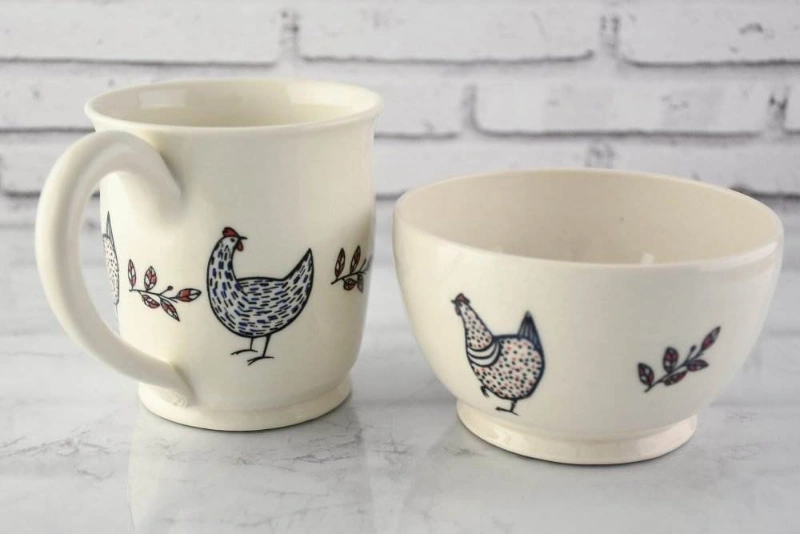
In contrast, ceramic mugs exude a rustic charm and artisanal appeal that is beloved by many. Available in a myriad of colors, patterns, and textures, ceramic mugs offer endless possibilities for personalization and self-expression. Whether adorned with hand-painted designs, embossed motifs, or textured finishes, ceramic mugs add character and warmth to any setting.
Their tactile qualities and organic feel evoke a sense of tradition and craftsmanship, making them cherished heirlooms passed down through generations. Additionally, ceramic mugs often feature ergonomic handles and comfortable grips, enhancing both their visual appeal and practical usability.
What’s Better About Glass Mugs?
Glass mugs have several advantages that make them a preferred choice for many consumers. Their transparency allows you to appreciate the color and clarity of your beverage, making them ideal for showcasing specialty coffees or teas. Glass mugs are also versatile, as they can be used for both hot and cold drinks without affecting the taste.
Their smooth surface makes them easy to clean, and they are resistant to stains and odors. Furthermore, glass mugs are often lightweight and less bulky than ceramic mugs, making them convenient for travel or outdoor use.
What’s Better About Ceramic Mugs?
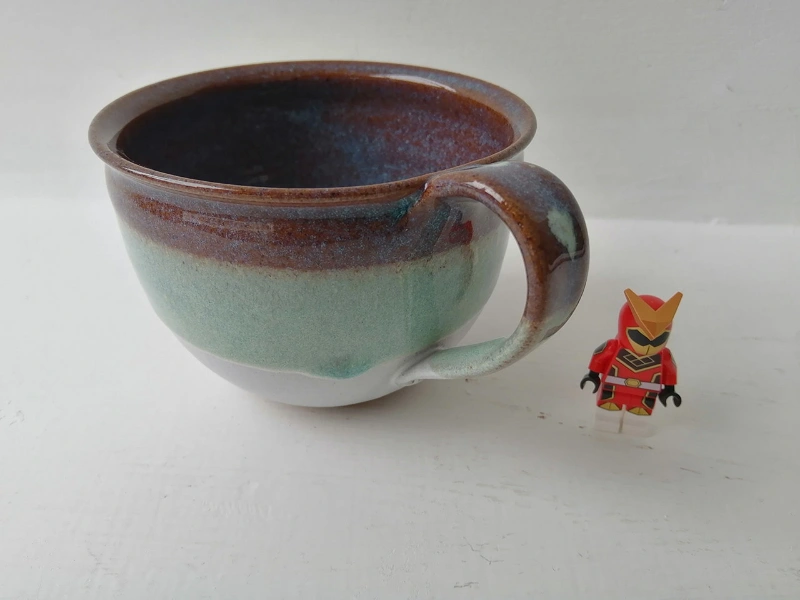
Ceramic mugs offer their own set of benefits that appeal to different preferences and lifestyles. One of their primary advantages is their superior heat retention, keeping your drink at the desired temperature for longer durations.
Ceramic mugs are also more durable than glass mugs, making them suitable for everyday use in busy households or office environments. Their wide variety of designs and finishes allow for greater personalization and expression of individual style. Additionally, ceramic mugs provide a comfortable grip, thanks to their thicker walls and ergonomic handles.
Who Should Get A Glass Mug and Why?
Glass mugs are an excellent choice for individuals who prioritize aesthetics and versatility in their drinkware. If you enjoy admiring the appearance of your beverage or experimenting with different types of drinks, such as layered lattes or colorful smoothies, a glass mug would be ideal.

Glass mugs are also suitable for those who prefer lightweight and easy-to-clean options, particularly for on-the-go use or outdoor activities. Furthermore, if you appreciate modern design aesthetics and minimalist decor, glass mugs can complement your style effortlessly.
Who Should Get A Ceramic Mug and Why?
Ceramic mugs are well-suited for individuals seeking durability, heat retention, and classic charm in their drinkware. If you prioritize functionality and longevity in your mugs, ceramic options offer excellent value for everyday use.
Ceramic mugs are also perfect for those who enjoy cozy and inviting atmospheres, as their warm aesthetic adds a touch of homeliness to any setting. If you’re a fan of artisanal craftsmanship or prefer unique designs that reflect your personality, ceramic mugs provide endless options for customization and expression.
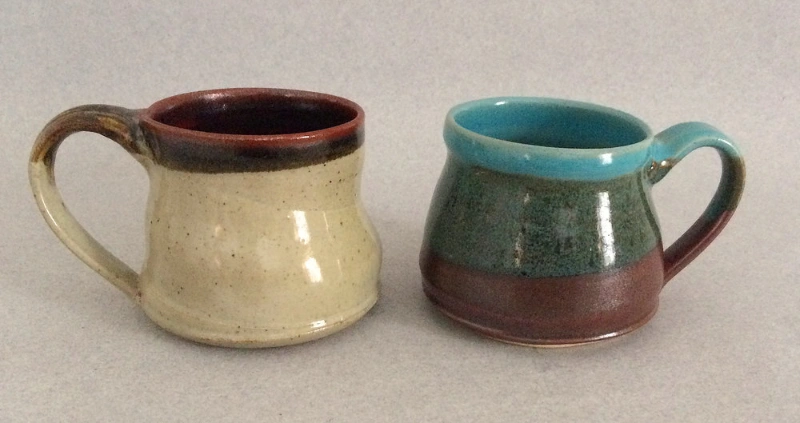
FAQs
Q: Are glass mugs safe for hot beverages?
A: Yes, glass mugs made from borosilicate glass are designed to withstand high temperatures and are safe for hot beverages.
Q: Can I microwave a ceramic mug?
A: It depends on the specific type of ceramic and the presence of metallic elements in the glaze. Some ceramic mugs are microwave-safe, while others may crack or release harmful chemicals when exposed to microwave radiation.
Q: Are glass mugs dishwasher-safe?
A: Many glass mugs are dishwasher-safe, but it’s essential to check the manufacturer’s instructions to ensure proper care and maintenance.
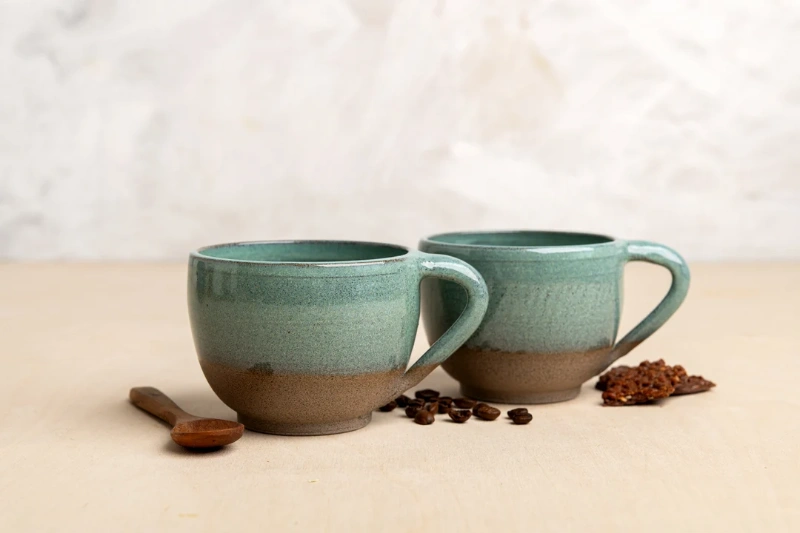
Conclusion
In the debate between glass and ceramic mugs, there is no definitive winner, as each material offers unique advantages suited to different preferences and lifestyles. Glass mugs appeal to those who value transparency, versatility, and modern aesthetics, while ceramic mugs cater to individuals seeking durability, heat retention, and classic charm.
Ultimately, the choice between glass and ceramic mugs depends on factors such as personal taste, practical considerations, and intended use. Whether you opt for the sleek elegance of a glass mug or the timeless appeal of a ceramic one, the perfect vessel for your favorite beverage awaits.


